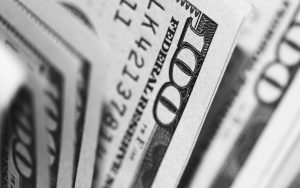Forex trading has become increasingly popular in recent years, with more and more people looking to enter the market in search of profits. However, many traders are unaware of the tax implications of forex trading. In this article, we will discuss how forex trading taxes work and what you need to know to stay compliant.
Firstly, it is important to understand that forex trading is considered a speculative activity by the IRS. Speculative activities are those that have a high degree of risk and involve the potential for significant gains or losses. As such, forex trading is subject to special tax rules.
The tax treatment of forex trading depends on whether you are a full-time trader or a part-time trader. Full-time traders are those who trade forex as their primary source of income. Part-time traders, on the other hand, trade forex on a part-time basis, while also holding down a full-time job.
For full-time traders, forex trading income is taxed as ordinary income. This means that it is subject to the same tax rates as your regular income. If you are a full-time trader, you will need to file a Schedule C with your tax return, which is used to report income or loss from a business.
In addition, full-time traders are also subject to self-employment taxes, which are currently set at 15.3%. This tax is calculated on your net income from forex trading, after deducting any allowable expenses. Self-employment taxes are paid on top of your regular income tax.
For part-time traders, forex trading income is taxed as capital gains. This means that it is subject to a lower tax rate than ordinary income. Capital gains tax rates vary depending on your income level and the length of time you held the asset. Short-term capital gains, which are gains on assets held for less than a year, are taxed at your ordinary income tax rate. Long-term capital gains, which are gains on assets held for more than a year, are taxed at a lower rate.
If you are a part-time trader, you will need to file a Schedule D with your tax return, which is used to report capital gains and losses. In addition, you may also be able to deduct any expenses related to your forex trading, such as trading software, education, and internet fees.
It is important to note that forex trading losses can be used to offset future gains. This means that if you have a losing year, you can carry forward your losses and use them to reduce your tax liability in future years. However, there are limits to how much you can deduct in any given year, so it is important to consult with a tax professional to ensure you are following the rules.
Furthermore, if you are a US citizen or resident alien and have a foreign bank account with a balance of $10,000 or more at any point during the year, you are required to file a Foreign Bank Account Report (FBAR). This report is used to disclose the existence of foreign bank accounts and is required by the IRS to combat tax evasion.
In conclusion, forex trading taxes can be complex and confusing, but it is important to understand the rules to avoid any potential penalties or fines. Whether you are a full-time or part-time trader, it is important to keep accurate records of your trades and consult with a tax professional to ensure you are following the rules. By staying compliant, you can focus on your trading and potentially reap the rewards of this exciting market.





